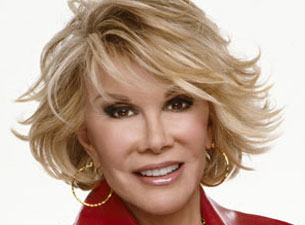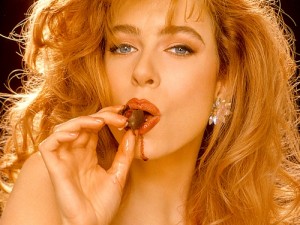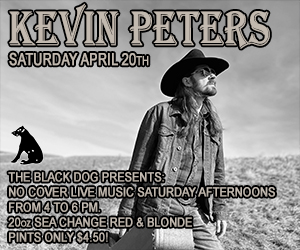2011, REAREND IN VIEW: Comedy thrives in Edmonton
 In almost a year of deep explorations of stand-up comedians and their comedy, two themes emerge:
In almost a year of deep explorations of stand-up comedians and their comedy, two themes emerge:
1. Geez, what a dirty job.
2. But somebody’s got to do it.
Yes, somebody has to tell the truth out there. We get lied to on a daily basis by the government, by corporations, by the media, by mom and dad. Stand-up comics are the only honest people left in the world. We expect them to be edgy. We want them to go over the line, over the top. We want to laugh with the shock of sudden universal recognition at some disagreeable human foible of which most of us dare not speak. When we go to a comedy show or watch one on TV, we’re both escaping cruel reality and immersing ourselves in it, trying to make sense of the horrors of humanity. We want the truth. We can handle the truth!
Most of us, anyway. Some people can’t handle honesty like they can’t handle their liquor – and here we have a perfect breeding ground for hecklers.
The heckler horror stories were the most educational part of the Giggle City series- not to dwell on the negative just for fun, but to see how comics deal with hecklers. It shows what they’re really made of. A great comeback can help make a career, while a bad one can destroy it (this is known as the Michael Richards Rule).
Several subjects this year have been verbally abused, shouted down, booed by entire audiences, physically attacked, chased through hallways. Edmonton’s Mike Dambra and Drew Behm were recently ambushed and assaulted in a parking lot in Rimbey, Alberta. We’ve heard at least four instances of comics having an ashtray thrown at them. Someone hurled a beer bottle at Bear announcer and stand-up guy Paul Brown. Sometimes a well-placed comeback or a harsh truth rendered in an amusing manner just hits an audience member the wrong way – and they snap! They lose it!
 Edmonton’s Paul Sveen sums it up, “People heckle comedians because the comedian has touched a source of pain in that person, whether it’s molestation, breaking up with your wife or losing a job. You’ve touched a nerve. If they get to the point where they throw an ashtray at you, they’re reliving the worst moment of their lives – and you’re doing comedy about it.”
Edmonton’s Paul Sveen sums it up, “People heckle comedians because the comedian has touched a source of pain in that person, whether it’s molestation, breaking up with your wife or losing a job. You’ve touched a nerve. If they get to the point where they throw an ashtray at you, they’re reliving the worst moment of their lives – and you’re doing comedy about it.”
Most subjects agree that there is no winning against a female heckler. It’s very tricky, agrees T.J. Miller, who says the most effective way of dealing with any heckler is to “recontextualize their behaviour and shame them into stopping.” It’d hard to see how this would’ve worked for Brian Scolaro, who once performed while a drunk woman dressed as a princess sitting in the front row slowly vomited on herself. “To me that’s a very effective heckle,” he says. Double whammy: Marty Hanenberg once had a drunk female heckler throw an ashtray at him. It was after he made a crack about her reproductive organs. Turns out she can’t have babies. How was he to know? Joan Rivers can’t have babies, either. The crusty comedienne – who recently played to a half-full Jube (or half empty, depending how you look at it) – was heckled in Wisconsin for making fun of Helen Keller. A man who had a deaf son didn’t think it was very funny, and said so. Joan replied, in typical form, “Let me tell you what comedy is all about … Comedy is to make everybody laugh at everything and deal with things, you idiot. My mother is deaf, you stupid son of a bitch.”
T.J. Miller, who seems to invite hecklers, sums it up: “Everyone has experienced tragedy – that’s why we go to comedy shows.”
There’s more to it than that, and there are a lot of ways to skin a cat for a laugh, no offense to cat lovers. Some comedians tackle truths that are big and disturbing, but many other truths are merely irritating, so tiny they are beneath notice, let alone mention. Enter Jerry Seinfeld, the master microbiologist of miniaturized comedy. The biggest local comedy draw of 2011 – three sold-out shows at the Jube in July – has made a career out of explaining what the deal is with various universal small annoyances. The man has a knack for making his entire audience feel good; we all came away with the notion that not one of us is alone … in feeling stupid about the stupid things we all do. In sharp contrast was puppeteer Jeff Dunham, who in March seemed to make a half-empty crowd at Rexall Place (second biggest local draw) actually feel bad for laughing at his racist jokes. Oh, sorry, he’s not a racist. It’s his puppets. Ventriloquists are creepy. Let’s just leave it at that.
Edmonton’s comedy scene is thriving – or not, depending whom you ask. Local veteran Tim Koslo declares it “alive and well,” pointing out the four full-time comedy clubs (Comic Strip, Yuk Yuk’s, The Comedy Factory and The Laugh Shop in Sherwood Park) and the surfeit of open mic comedy nights. Never mind that some of the touring comedy shows tanked at the box office, with Kathy Griffin cancelling entirely due to lack of ticket sales. Big ticket shows included Norm MacDonald at the River Cree and Jon LaJoie – YouTube sensation turned stand-up comic – selling out two shows at the Myer Horowitz Theatre.
 Another bright spot was the first annual Edmonton Comedy Festival which featured special guests like Joe Flaherty and a who’s who of locals, including festival artistic director and veteran stand-up Andrew Grose. He has great yarn about getting bested by a female heckler who claimed her husband had just died, that he was their favourite comedian and then got the entire crowd booing him. She only told him later that she was lying. Even Flaherty is not immune. He told a story of having a drink thrown at him by an irate Christian during a Second City sketch that made fun of the Bible. Improv and sketch comedy is one of varied methods to make a career in comedy and make people angry.
Another bright spot was the first annual Edmonton Comedy Festival which featured special guests like Joe Flaherty and a who’s who of locals, including festival artistic director and veteran stand-up Andrew Grose. He has great yarn about getting bested by a female heckler who claimed her husband had just died, that he was their favourite comedian and then got the entire crowd booing him. She only told him later that she was lying. Even Flaherty is not immune. He told a story of having a drink thrown at him by an irate Christian during a Second City sketch that made fun of the Bible. Improv and sketch comedy is one of varied methods to make a career in comedy and make people angry.
One of the most surprising things learned was the divide in opinion on the question of whether you have to be a pessimist to be a good comic. Most comedians interviewed agreed you have to have SOMETHING, a sceptical eye, at least. You can’t just be a happy idiot. Marcus Beaubier says there are two camps in comedy: “There’s the George Carlin camp, who loved people, but hated humanity, and the Bill Hicks camp, who loved humanity, but hated people.”
Harland Williams admitted he didn’t like either of them, saying that while he admired their ability, “I’m not a fan of them being angry at everything. Who wants to sit in a room with someone who’s angry all the time?” Optimism is a better approach to comedy, he says.
Felicia Michaels (above) has another take: That there is “hope” to the overriding message from Hicks, Carlin and any other allegedly pessimist comic who genuinely wants the world to be a better place, for people to be less dumb. And that’s why they’re angry.
We get to women in comedy only because there are so few women in comedy. Michaels managed to tame a room full of rowdy riggers in Fort McMurray. Before she even said a word, a heckler piped up, “Yeah, I’d sure like to fuck you in the ass!” Her response, sweetly, “Wow, you guys have been up here too long if that’s the only hole you wanna fuck me in.” He bought her a drink afterwards.
Debra DiGiovanni also uses her gender to comic effect in getting away with rhetorical murder. She sums it up, “There are some men who don’t want to hear women say stuff like that, though you usually don’t find them in a comedy club.”
From gender we get to race. Another of the big-ticket comics to hit Edmonton this year was Shaun Majumder – the Indo-Canadian comic who isn’t Russell Peters – who definitely played the race card at the Winspear Centre in May. He says he got a good bit from an audience member who once called him a “nigger.”
His response: “Look, people, if you’re going to be racist, you can’t be ignorant. You have to be well read, understand the race you hate, and what the correct terminology is for the slang of the race. That’s just pure lazy racism and not acceptable in the higher echelon of racist clubs around the world.”
 It was interesting to explore this mysterious “line” that comedians are expected to cross or not cross, however the case may be. There’s a lot more to “dirty” comedy than just saying the f-word over and over again. Three who know this well are Kenny Robinson, Darren Frost and Kathleen McGee – the triple bill of “Dirty Comics” that came to Yuk Yuk’s in October. Frost declares, “Line? There is no line. I’ve been in trouble. Newspapers across Canada have called me evil for my topics. The day after Jack Layton died I did jokes about it.” Robinson was happy to give an example of his brand of blue humour, a routine on the reason the c-word is so objectionable: “It’s because it’s not named after an animal. All the words we use for a woman’s sexual organs are named after animals: Beaver, pussy, mink, clam, camel toe, snapper …” And let’s stop there. We’re trying to keep it clean.
It was interesting to explore this mysterious “line” that comedians are expected to cross or not cross, however the case may be. There’s a lot more to “dirty” comedy than just saying the f-word over and over again. Three who know this well are Kenny Robinson, Darren Frost and Kathleen McGee – the triple bill of “Dirty Comics” that came to Yuk Yuk’s in October. Frost declares, “Line? There is no line. I’ve been in trouble. Newspapers across Canada have called me evil for my topics. The day after Jack Layton died I did jokes about it.” Robinson was happy to give an example of his brand of blue humour, a routine on the reason the c-word is so objectionable: “It’s because it’s not named after an animal. All the words we use for a woman’s sexual organs are named after animals: Beaver, pussy, mink, clam, camel toe, snapper …” And let’s stop there. We’re trying to keep it clean.
Robinson can work clean, too – when he works cruise ships and the corporate gigs.
These engagements pay very well, which brings us to a contentious topic touched on only briefly, yet one that has disturbing portent for the future of modern comedy: The brain drain into the corporate comedy world. It was shocking to learn that gifted local improv artist Donovan Workun (who will be featured in an upcoming Giggle City piece) has not performed in public as Atomic Improv in quite a while, as most of his time taken up with high-paying corporate gigs, which are coveted by many area comics interviewed. The effect is twofold: 1. The best comedians are removed from the public arena, and 2. They tend to sanitize and self-censor their material in front of “corporate” audiences. It’s not just about avoiding the f-word. If you have politically-motivated oilsands jokes, some environmental truth to tell, you’re not going to do them at the Syncrude Christmas party.
Asked what joke he considers being close to over the line, Brian Stollery says this: “You may get the impression that I don’t like kids. But I do. I love kids. In fact, my shirt was made by a kid. So let’s have a round of applause for No. 23 for making me look so fantastic! I don’t do that at the corporate gigs. They don’t find that funny. But it’s true, isn’t it?”
Edmonton’s Howie Miller also does a lot of corporate functions. He says he usually ends those shows with this spiel: “We’ve had a lovely journey. It’s an honour to have performed for you. This is why I love my job: I get to perform to new people every week, but there is an old show biz adage that you can only please half the people half the time, so if I’ve offended anybody here this evening, FUCK OFF! Freedom of speech!”
More study is clearly needed.













